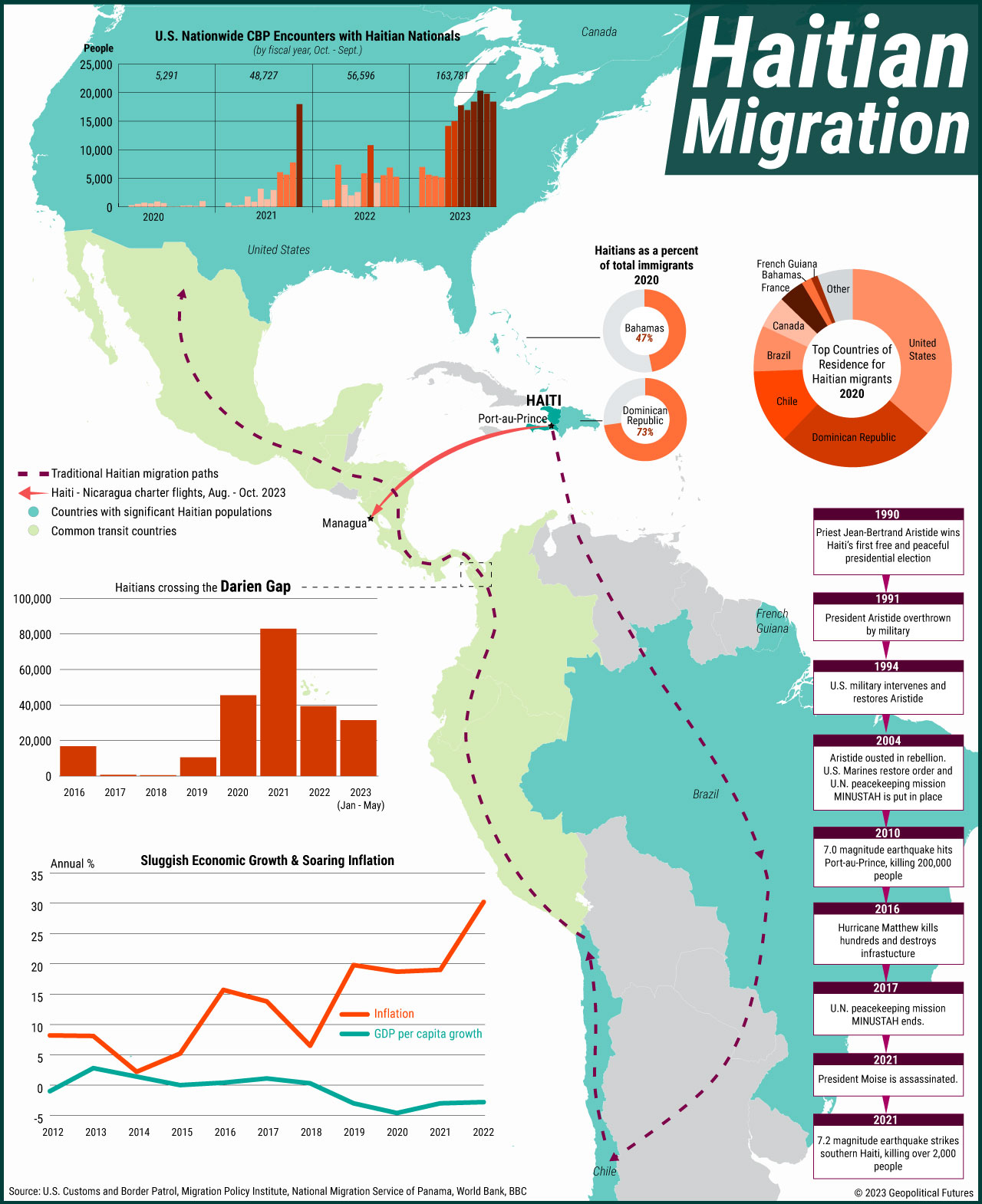As the poorest country in the Western Hemisphere, Haiti is often labeled a failed state due to its poor economy, weak government, lack of infrastructure and rampant gang violence. Insecurity in the country has only grown since the 2021 assassination of President Jovenel Moise. Such conditions have led many Haitians to flee in search of safety and opportunity. Though nearby countries have taken steps to help curb the migrant flow – for example, the Dominican Republic closed its borders – many resourceful individuals have found ways around it.
More than a year ago, the Haitian government appealed for the immediate deployment of a multinational armed force to help it rein in the gang violence and restore security so that it may hold long-delayed elections. Recently, the U.N. Security Council agreed to deploy such a force, led by Kenya. The U.N. resolution called for the armed force to remain in Haiti for one year, with a review scheduled after the first nine months.





